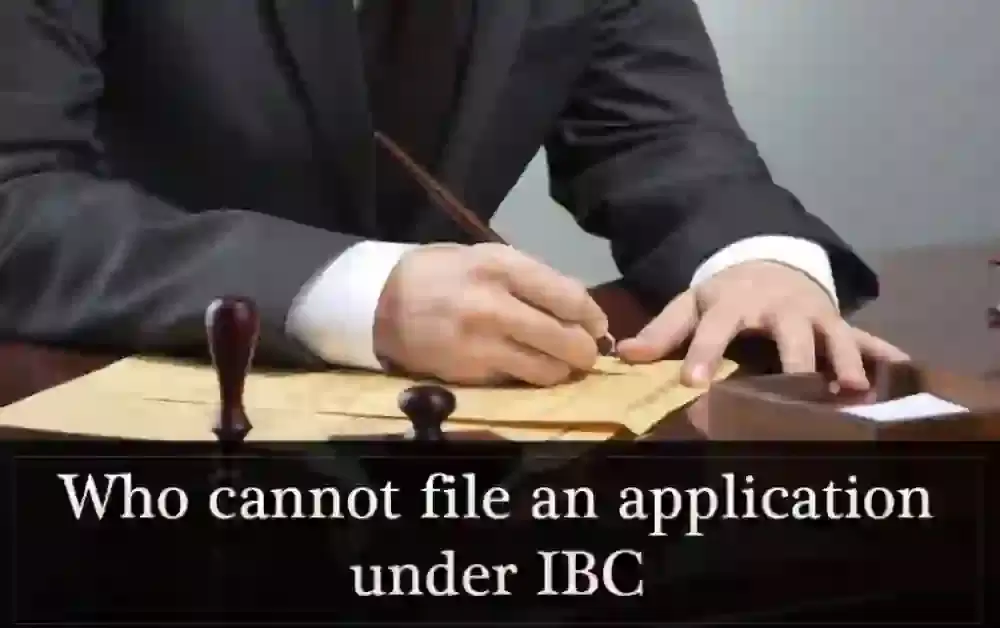Who Cannot File an Application under IBC
- December 11, 2018
- Registrationwala

- Home
- /
- Knowledge Base
- /
- Insolvency
- /
- Bankruptcy
- /
- Who Cannot File an Application under IBC
Who Cannot File an Application under IBC
Insolvency resolution is a process that can be initiated by either a financial creditor, operational creditor or even the corporate debtor. These persons can do it through filing a petition under the IBC. That being said, in the blog in which we explained those who can file the application, we explained that when it comes to the corporate debtor, it represents a conundrum. The reason for this is pretty simple. In India, the focus of IB code is not to essentially reprieve the corporate debtor from their debts; rather, it is focused upon ensuring fair returns to the creditors. Therefore, there are only certain conditions in which a corporate debtor can actually file the application for insolvency resolution. What are those conditions? Well, let us, through this blog, discuss these conditions in a contradictory fashion, but telling you who cannot file an application under IBC.
Persons that can’t file the application
According to the section 11 of the IBC code, the following are the persons that are not allowed to start the Insolvency resolution process:
- A corporate debtor, who is, at the time of filing the application, is going through the insolvency resolution. This is the case where the operational/financial creditors have already initiated the process and corporate debtor wants to start off a “separate” process. This cannot happen.
- A corporate debtor who has already gone through the insolvency resolution process a year prior to filing the application. To get the gist of this point, once the corporate debtor has gone through the Insolvency resolution process, they cannot opt to initiate another Insolvency resolution process from their side for a year.
- A corporate debtor who has violated any terms associated with the insolvency resolution process that took place 12 months before the making of the application.
Note: This same point is also applicable for the operational/financial creditors i.e. if they have violated any terms of insolvency resolution, then for 12 months, they cannot attempt to start another insolvency resolution process.
- The corporate debtor against whom, the liquidation order has been made. This is the corporate debtor who has already gone through the insolvency resolution process already and either the resolution process was unsuccessful or the committee of creditors have jointly decided to liquidate the corporate debtor’s assets.
As you can see, a certain type of corporate debtors forms the major group of people who can’t file the application for the insolvency resolution process. This begs the question- what is involved with corporate debtor filing the application for insolvency resolution? This is the question we are going ponder upon in our future articles.
- 3953 views
